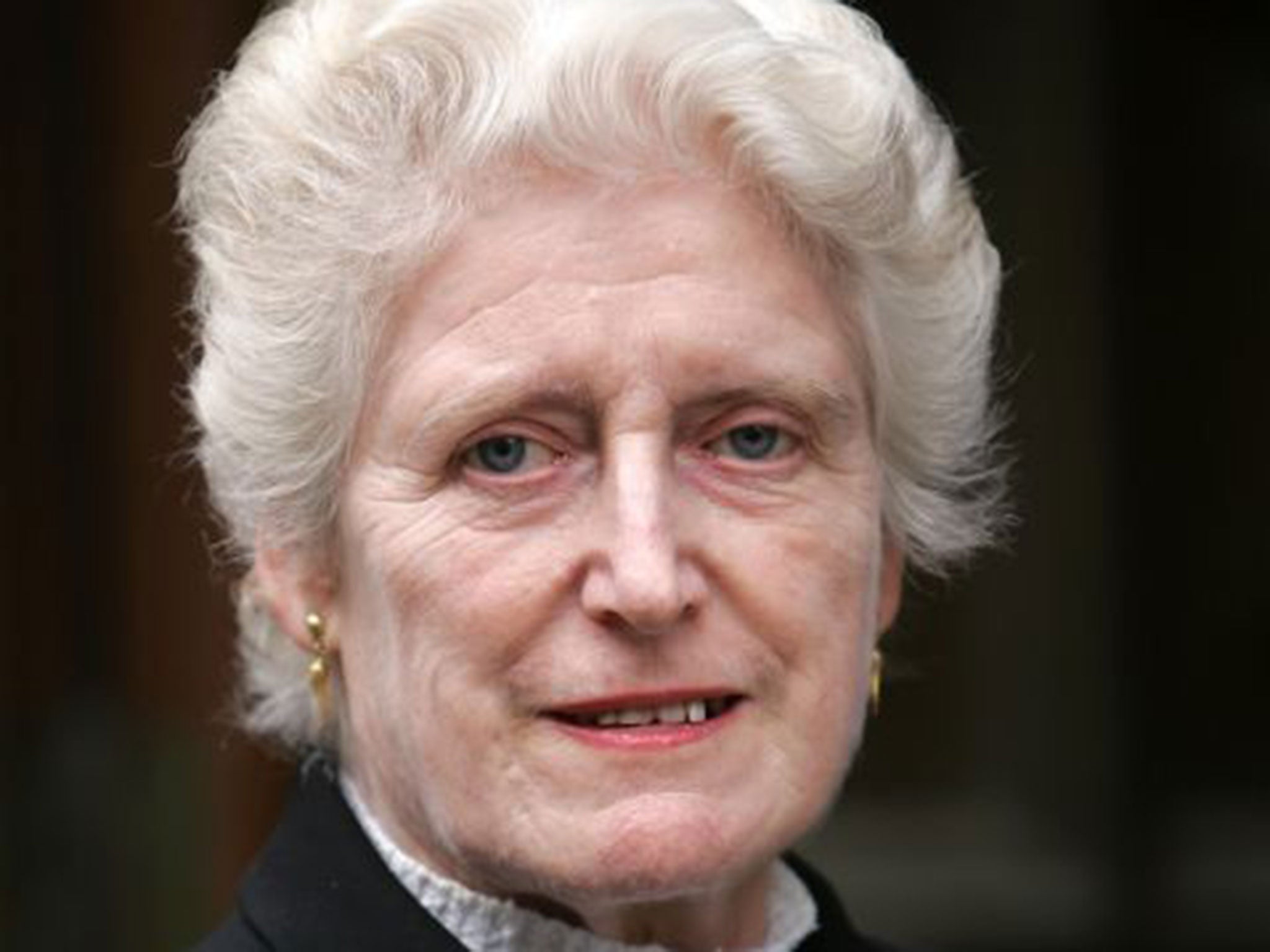I don’t worry about the pitch of my voice – and nor should any woman
Sorry Lady Butler-Sloss, but one doesn't have to to speak like a chap, in order to be taken seriously anymore

When I was 29, I got a job as a BBC correspondent. In the first week in the job, I was taken into a radio studio at Broadcasting House and advised that I should try making my voice lower. Oh, I knew all about my subject (arts), at least I thought I did, but the problem was this: would I convey enough authority in what I said, when I was saying it? After a session or two with the lovely radio newsreader Peter Donaldson, I suspect my voice remained pretty much the same, although I probably slowed my delivery down a bit. But in those days, the received opinion about pitch was the same as that about pronunciation: in other words, the more of it, the better. If you were a woman in charge of a microphone, those with lower voices were deemed as “better”. Anna Ford, for example. Not Julie Burchill.
According to the Today programme, which devoted eight minutes to the issue yesterday, the vocal landscape is still very much the same. Women should speak slower and at a lower pitch, opined Lady Butler-Sloss, who was guest editor for the day. When she joined the Bar, she said, one had to speak like a chap, in order to be taken seriously. That’s what her brother (Sir Michael Havers, the Attorney General) told her, at least. She used to practise in front of the mirror, at home. There then followed a rather predictable chat with a voice coach, following which we heard a clip from Parliament, where Theresa May (low, Tory) was being rather expertly grilled by Yvette Cooper (high, Labour). Unsurprisingly, Lady B-S said that she thought May was rather more effective than Cooper.
Can I meekly suggest (in quite a high voice) that the guest editor for the Today programme was showing her age, and not in an authoritative way, but an out-of-touch way. As with RP, the adherence to which has quietly been abandoned across the airwaves as a standard, not many people seem to be much bothered about the tone in which women speak these days. Because hearing a woman speaking in public isn’t remarkable. There are enough socially prominent women for a variety of tones and accents to be heard, frequently. Of course, when in public, you should speak slowly and clearly – but that goes for anyone. Gone are the days when women had to dress in masculine-style clothes, or speak in a manly tone to be taken seriously.
I think this is not only to do with more women gaining positions of prominence, but also an insistence by women – a wide group of women across the world, women living in places where they have not historically been allowed to speak out – about telling their story and insisting that their voices be heard. No matter what the pitch. Who cares whether Malala Yousafzai has a high or a low voice? The activist for female education and youngest-ever Nobel laureate has made the whole world listen, and she certainly speaks with authority.
Equally the campaigners for female equality in India have forced their issues on to a global consciousness without seeming to worry overtly about pitch, or the lack of it. They have authority. As well as brains, bravery and conviction. End of.
2014 has been claimed by many as the Year of the Woman; where women across the world have protested against a variety of crucial gender-related issues, be it education denial, arranged marriages, historic sexual abuse, low pay, or misogynist violence. Their voices have not been relegated to some small feminist publication. They have been heard on mainstream media and throughout the myriad online platforms now available to all.
I think that continuing to discuss whether women should work to lower their voices in order to be taken seriously is about as interesting as questioning whether women should speak in public, or wear trousers in the boardroom. It is dated and irrelevant. This may be bad news for voice coaches.
Time to find a shop that sells moose and spelt
New Year’s Day? Starting a new diet, anyone? How about the Viking Diet? Give up all that Mediterranean gloop, the olive oil and the chopped tomatoes, and get going with a bit of barbecued moose and some foraged plants. Kate Christensen, who writes for Vogue, has apparently lost 4lbs in two weeks while munching on moose and washing it down with a bit of spelt and root vegetables (possibly foraged from the Condé Nast office). The diet, which was created by two chefs in Denmark, natch, is being heralded as the Next Big Thing in healthy eating.
Well, it might work. The Scandinavians do after all have the best vodka, saunas, fashion labels, cars, children’s toys, and social ratings in just about everything, plus a tourist industry entirely dependent on hotels constructed from ice. Furthermore, have you ever seen a fat Viking? Precisely.
Join our commenting forum
Join thought-provoking conversations, follow other Independent readers and see their replies
Comments
Bookmark popover
Removed from bookmarks